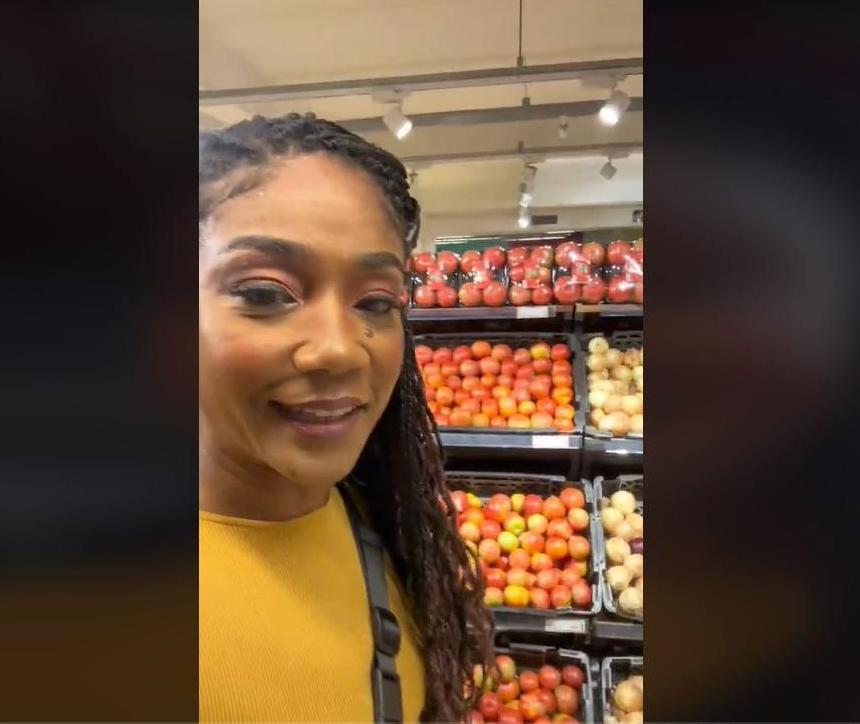American comedian Tiffany Haddish has found herself at the center of a social media storm following a TikTok video she posted during a visit to Zimbabwe. The 44-year-old actor’s genuine surprise at the presence of modern supermarkets in the African nation has sparked a heated debate about Western perceptions of the continent.

In the video, which has garnered over 200,000 views on TikTok, Haddish is seen strolling through the aisles of a large supermarket chain in Harare, Zimbabwe’s capital. “Look at this grocery store. It’s humungous, in Africa,” she exclaims, panning over shelves stocked with soft drinks, frozen meats, and fresh produce.
The reaction from many Zimbabweans and other African social media users was swift and critical. One user on X (formerly Twitter) commented, “How ignorant could she be? Did she think that Africans shop from rocks? She needs to travel more and unclog her sadly colonized view of the world.” Others expressed frustration at the persistent stereotypes about Africa, with one user noting, “They think we’re chasing lions and zebras.”

In response to the backlash, Haddish took to X to defend her intentions. She explained that as an African American, she had been exposed to a narrative that portrayed Africa as a place of constant poverty and conflict. “I am an American, a Black one at that, and told for years that people are starving in Africa, showed pictures of babies with flies on them,” she wrote. Haddish added that she had been told “crazy stories” about how Africans “kill each other” and there is “war everyday.”
The comedian, who is half-Eritrean and first visited Eritrea in 2018, stated that her trip to Zimbabwe has been eye-opening. “I thought I would share cause I know people in the USA that believe Africans don’t have anything,” she explained, emphasizing her intent to challenge these misconceptions.

While the controversy has highlighted the persistence of stereotypes about Africa in Western media and education, it has also sparked a broader conversation about cultural understanding and the responsibility of public figures when discussing other cultures. Some supporters of Haddish have appreciated her honesty and willingness to learn, with one commenter noting, “We like that you like our grocery store and all the products that shocked you are just basics here as well, we really aren’t in the forest hanging on trees.”
This incident underscores the complex relationship between African Americans and continental Africans, as well as the ongoing struggle against outdated and harmful stereotypes about Africa in global media. As the discussion continues, it serves as a reminder of the importance of firsthand experience and open dialogue in challenging long-held misconceptions.
As Haddish continues her journey of discovery in Africa, her experience highlights the need for more nuanced and accurate representations of the continent’s diverse nations and cultures in international discourse.


